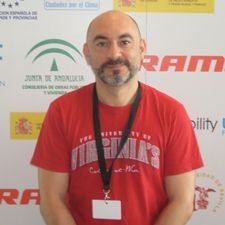SEVILLE, Spain (BRAIN)—Cycling infrastructure not only serves citizens but serves industry interests as well, noted PhD candidate Pedro Malpica at Velo-city 2011.
Malpica attended Velo-city to conduct research for his doctoral thesis titled "Urban cyclists in Seville: the formation of identities and subcultures and the emergence of a new social group."
While conference organizers trumpeted Seville's successful morphing from a city choked by traffic congestion to a city that's centered on community rather than cars, Malpica pointed out that bicycle-related business was the largest growth sector in Seville during the past four years.
"It's not just an issue of business numbers, but business types," Malpica said. "In addition to retailers, there are now businesses for cyclo-tourism, bike rental, insurance, and advertising via public bike share schemes."
Due to higher volume sales, bike shops have had to improve their product offerings to stay competitive. Stores that sell specialty items have extended their reach beyond the local market to serve consumers with more refined demands.
"The very concept of 'bike shop' (generally speaking) is becoming rare in Seville," Malpica added. "There are now specialty shops that exclusively sell racing bikes, folding bikes, or stores that only sell vintage bikes—the degree of specialization is enormous. This only happens if you have a large and diverse market."
The three-day conference, which wrapped up Friday, drew 915 participants and 29 vendors representing 47 countries. They came to Velo-city 2011 to search for or share solutions to global health challenges, threats to the environment and unsustainable economies. The international conference convened healthcare professionals, civic officials, urban planners, and respected leaders in their fields, who had identified the bike, bicycle infrastructure, and the promotion of cycling as the most effective weapons against problems such as energy dependency, climate change and obesity.
—Wendy Booher
Photo: Pedro Malpica is studying Seville’s cycling culture as part of his doctoral thesis.




